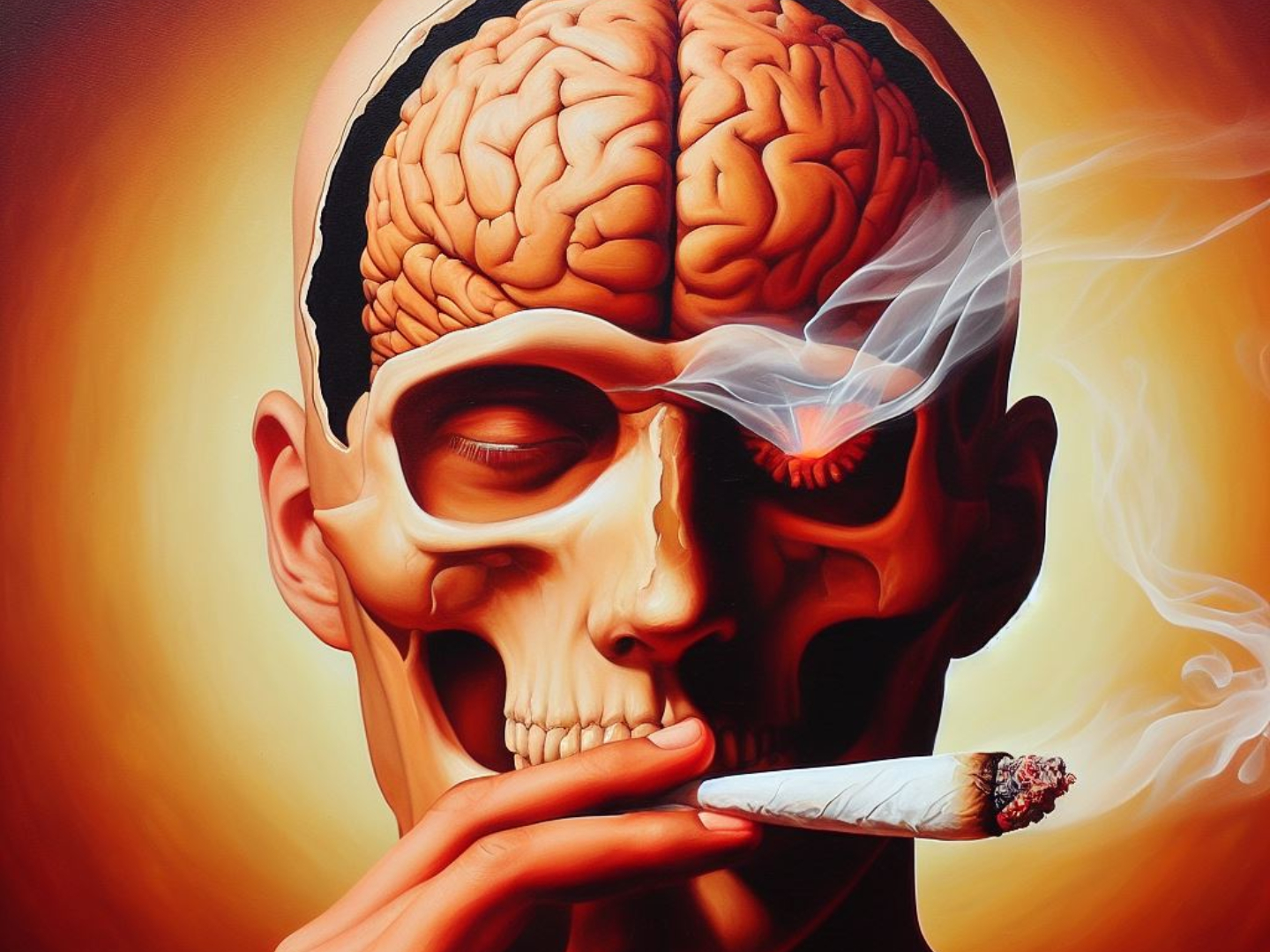Cannabis

Cannabis is one of the most widely used substances worldwide with an estimated global prevalence of 2.7 – 4.9 (UNODC, 2017) percent and a lifetime-use of 78 percent (Global Drug Survey, 2017). Its sought-after psychoactive effects include relaxation, euphoria and dreaminess, but it can also lead to feelings of anxiety and paranoia. Cannabis contains more than 600 compounds, including over 85 different cannabinoids, which have been recognized for both their toxic and potential therapeutic effects, and which exert their effects through the endogenous cannabinoid system. Delta-9-tetrahydrocannabinol (commonly known as Δ9-THC or THC) is considered to be the primary psychoactive constituent present in cannabis responsible for the acute effects of cannabis on various cognitive functions including memory and attention. In contrast, the other major cannabinoid that has attracted attention in recent years, cannabidiol (CBD), is non-psychoactive and might have anxiolytic and antipsychotic effects.
Laboratory studies by our group have investigated neurocognitive performance and neurophysiological functioning during THC-intoxication as well as cannabinoid pharmacokinetic properties in both occasional and heavy/chronic users. Our work on cannabis-induced cognitive impairments has specifically focused on performance tests measuring skills related to driving, such as perceptual motor control, motor impulsivity, and cognitive function. Moreover, the impairing effects of high-potency cannabis on executive function and inhibitory motor control have been studied, and we have tested whether the cannabis-induced memory impairment is mediated via glutamatergic or cholinergic pathways.
Further studies include investigations of cannabis-induced neuroadaptations (using fMRI), field and laboratory experiments examining memory for a criminal event during and after cannabis intoxication. In addition, we have also conducted a series of studies into the neurocognitive and psychotomimetic effects of synthetic cannabinoids (see NPS). Collectively, these studies have contributed to our understanding of individual variability in the neurocognitive response to an acute challenge with cannabis. We have subsequently proposed pharmacodynamic models that explain neurocognitive tolerance to repeated exposure to cannabis and that identify a range of biological and pharmacological determinants of the neurocognitive response to acute cannabis exposure. We have argued that these determinants of the cannabis-induced neurocognitive state should be taken into account when defining and evaluating levels of cannabis impairment in the legal arena, when prescribing cannabis in therapeutic settings and when informing society about the safe and responsible use of cannabis..

- The acute and chronic effects of dronabinol [medicinal Δ9-tetrahydrocannabinol (THC)] on actual driving performance and the Standard Field Sobriety Test (SFST) were assessed. It was hypothesized that occasional users would be impaired on these tests and that heavy users would show less impairment due to tolerance.

- Performance impairment during Δ9-tetrahydrocannabinol (THC) intoxication has been well described in occasional cannabis users. It is less clear whether tolerance develops to the impairing effects of THC in heavy users of cannabis. The aim of the present study was to assess neurocognitive performance during acute THC intoxication in occasional and heavy users.

- Cannabis is the most commonly used illicit drug and is known to alter state of consciousness and impair neurocognitive function. However, the mechanisms underlying these effects have yet to be fully elucidated. Rodent studies suggest that Δ9-tetrahydrocannabinol (THC) activates dopaminergic neurons in the limbic system, subsequently enhancing dopamine, which is implicated in the rewarding effects of cannabis.

- Cannabis use has been associated with increased risk of becoming involved in traffic accidents; however, the relation between THC concentration and driver impairment is relatively obscure. The present study was designed to define performance impairment as a function of THC in serum and oral fluid in order to provide a scientific framework to the development of per se limits for driving under the influence of cannabis.

- This unique randomized, double-blind, placebo-controlled trial examined the susceptibility to false memories under the influence of cannabis, using a basic (DRM) and two applied (misinformation) paradigms. We used a highly powered experimental design, allowing us to test acute and residual drug effects. To achieve high reproducibility and ecological validity, the misinformation paradigms included an eyewitness and a perpetrator scenario, presented in a virtual-reality environment.







